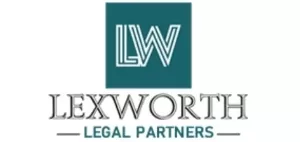- within Media, Telecoms, IT and Entertainment topic(s)
- in Europe
- with readers working within the Retail & Leisure and Law Firm industries
- within Media, Telecoms, IT and Entertainment topic(s)
- in Europe
- in Europe
- in Europe
- in Europe
- in Europe
- in Europe
- in Europe
- in Europe
- with readers working within the Retail & Leisure industries
- within Media, Telecoms, IT, Entertainment, Tax and Privacy topic(s)
- with Finance and Tax Executives
INTRODUCTION: Historical Attempts to Regulate Digital Platforms in Nigeria
In Nigeria, social media has served as an important tool in our society for the dissemination of information, to enhance human interaction and for collaborative purposes. However, for every technological advancement, there will be drawbacks resulting partly from misuse by users; examples of which include the peddling of false information, cyber bullying and threats, fraud, hacking etc.
Historically, in the Nigerian government's attempt to regulate the use of digital platforms including social media platforms and curb its excesses, a Bill titled ''A Bill for an Act to prohibit Frivolous Petitions and other Matters Connected Therewith'' was sponsored by Senator Bala N'Allah in 2015. This Bill proposed up to two years' imprisonment or a fine of $10,000, or both for anyone found guilty of posting abusive statements via text message or any social media platforms. The Bill also made it compulsory for anyone who unlawfully uses, publishes or cause to be published, any petition, compliant not supported by a duly affidavit to be deemed to have committed an offence and upon conviction, liable to a term of imprisonment of six months, without an option of a fine. This Bill, at the time, provoked diverse reactions from the public. An opinion of strong dissent in this instance was that is the Bill's intention was to infringe people's right to freedom of speech, and an attempt by lawmakers to silence citizens from calling out the nefarious actions of those in government1. The Bill was eventually withdrawn.
A second attempt was made in 2019 to regulate the use of digital platforms with the introduction of a Bill titled ''Protection from Internet Falsehoods, Manipulations, and other Related Matters Bill'. The Bill attempted to ban statements deemed likely to be prejudicial to national security and those which may diminish public confidence in Nigeria's Government. The Bill attempted to give the Nigerian Communications Commission (NCC) the power to order internet access service providers (ISPs) to disable access to identified users in Nigeria. The2 Bill also attempted to ban statements that incite feelings of enmity and hatred directed at persons or ill-will between different groups, amongst others. This Bill was not accepted by Nigerians, and this stirred negative responses that led to the movement against it on social media with the hashtag "#SayNoToSocialMediaBill" with citizens signing petitions against it and writing to Senators representing their constituencies to vote out the Bill. The Bill was also withdrawn by the Senate.
On the 1st of June 2021, Twitter (now known as "X") was temporarily banned by the Nigerian Government after the platform deleted a tweet made by the former president of Nigeria, Muhammadu Buhari, thereby cutting off millions of Nigerian users from the Platform. The ban was eventually lifted after certain conditions were fulfilled by the social media platform at the behest of the Nigerian Government. Upon its fulfilment of these conditions the ban was lifted on the 12th of January 2022.
Months after the lifting of the ban, the National Information Technology Development Agency(''NITDA''), an agency established by the Federal Government to develop, regulate and advise on information technology in the country and the body in charge of implementing e-government, internet governance and general IT development in Nigeria, released the draft Code of Practice for Interactive Computer Service Platforms/Internet Intermediaries (the "Code") which was signed into law on the 26th of September 2022. The objective of this Code of Practice was to set out best practices that will make the digital ecosystem safer for Nigerians and foreigners and put in place measures to combat online vices such as disinformation and misinformation. The Code was introduced to also adopt and apply a co-regulatory approach towards implementation and compliance.
This Article will examine some of the Code's provisions, their implications on the right to freedom of expression and digital rights.
A LOOK AT THE CODE OF PRACTICE
The Code defines a "Platform" as any electronic medium or site where services are provided by means of a computer resource and on-demand and where Users create, upload, share, disseminate, modify, or access information, including websites that provide reviews, and gaming platforms. This definition implies that the Code's purview would cover all digital platforms including those of fintech and other technology companies, gaming companies, companies' websites, e-commerce platforms, social media platforms and other service platforms that offer goods and services to the consuming public.
The term "Internet Intermediary" was defined as including but not limited to social media operators, websites, blogs, media sharing websites, online discussion forums, streaming Platform, and other similar oriented intermediaries where services are either enabled or provided and transactions are conducted and where Users can create, read, engage, upload, share, disseminate, modify, or access information. Both Interactive Computer Service Platforms and Internet Intermediaries are referred to as "Platforms" under the Code.
Salient Provisions in the Code include the following:
Regulatory Compliance: Platforms are mandated to comply with all applicable Nigerian Laws and regulations as well as desist from acts capable of undermining or interfering with the application and enforcement of the law. Also, such platforms are expected to file an annual compliance report with NITDA that indicates the number of registered users, active registered users, closed and deactivated accounts, removed content with and without notice or Court order, contents put back with or without notice, contents removed and reuploaded, information on how children and adults are protected from harmful content which they may encounter, information on the number of complaints registered with a Platform, resolved and unresolved complaints, etc3
Prevention of Nudity/Sexual Content: An Interactive Computer Service Platform is mandated to act expeditiously to remove, disable or block access to non-consensual content that exposes a person's private areas, full or partial nudity, sexual act, deep fake or revenge porn, where such content is targeted to intimidate, harass or cause disrepute to an individual. The Platform must acknowledge receipt of the complaint and take down such posts within 24hours of being notified of such content on its platform.
Incorporation of Large Service Platforms: The Code provides additional responsibilities for all platforms whose users are more than one hundred thousand. Such businesses are required to be incorporated in Nigeria, have a physical contact address in Nigeria and appoint a liaison officer who shall serve as a communication channel between the government and platform. They are to provide users or authorised government agencies upon request a report of due process of their activities4.
Measures on Misinformation and Disinformation: Interactive Computer Service Platforms are to acquaint themselves with indigenous and contextual manifestations causing disinformation and/or misinformation and factors motivating its spread in Nigeria. Platforms are to take steps to prevent as well as curtail and take down content capable of misinformation and disinformation. Platforms are to trace, expose, penalise and close accounts/sources that amplify disinformation and misinformation5.
Terms of Use6: Platforms are to publish on their website or application, Terms of Use and Rules of Usage which must be easily accessible and comprehensible.
Provision of Complaints Channel: The Code requires platforms to create a dedicated channel that is available all the time where an authorised government agency can lodge or forward a request or complaint against content that is unlawful or harmful. The complainant (government agency or user) shall be provided with a unique code or ticket number for tracking the progress of a compliant as well as the be presented with a written report on its resolution and evidence of its determination by the platform7.
Due Diligence: Platforms are mandated to exercise due diligence to ensure that no unlawful content is uploaded on their platform. In case the platform receives a notice from a complainant (user or government agency) that unlawful content has been uploaded, such Platform is required to take it down and ensure it stays down. No liability shall be incurred by a Platform where such Platform has taken all reasonable steps to ensure that an unlawful content is taken or stays down8.
Disclosure of Information Pursuant to Court Orders: Platforms are to act expeditiously upon receiving a Court Order to disclose any information under their domain or offer assistance to any authorised government agency for the purpose of carrying out an investigation, combatting cybercrimes, or prosecuting an offence9.
CONCLUSION
The Code of Practice signifies a right step in regulating the use of digital platforms, including social media, therefore curbing online vices such as cyber harassment, child pornography, disinformation and misinformation and content capable of undermining the sovereignty, peace, and security of Nigeria. The Code, however, contains provisions that may likely infringe on the right to freedom of speech and expression as enshrined in the 1999 Constitution.
The provisions of the Code with respect to large service Platforms suggest that the Code can be used as a means for the government to monitor and control the nature of the content that is available to the Nigerian public, especially considering the fact that the regulator is given wide powers of regulation on the basis the preservation of the sovereignty, security, public order, foreign diplomatic relations and integrity of Nigeria.
Furthermore, terms such as 'disinformation', 'misinformation', 'harmful content', 'unlawful content', and 'prohibited materials' were not defined by the Code and are as such left to the discretion of enforcement agencies.
In conclusion, it is worthy of note that on the 11th of October 2023, Nigeria's current President, Bola Ahmed Tinubu, introduced a new Bill for The Regulation of Digital Platforms. This Bill has been sent to the National Assembly and seeks to repeal and reenact the National Broadcasting Act, Cap L11 Laws of the Federation of Nigeria 200410.
It is hoped that the grey areas identified in NITDA's Code of Practice will be adequately addressed should the Bill be eventually passed into an Act of the Federal Republic of Nigeria.
Footnotes
1. https://guardian.ng/opinion/the-anti-social-media-bill/
2. https://guardian.ng/wp-content/uploads/2019/11/Protection-from-Internet-Falsehood-and-Manipulation-Bill-2019.pdf
3. Part II(9) of the Code of Practice.
4. Part III of the Code
5. Part V(10) of the Code
6. Part II(1) of the Code
7. Part I(7-10) of the Code of Practice.
8. Part I(6) of the Code of Practice.
9. Part I(2) of the Code of Practice.
10. https://journalist101.com/2023/10/11/tinubus-govt-sends-new-bill-to-regulate-social-media-to-national-assembly-says-its-a-monster/
The content of this article is intended to provide a general guide to the subject matter. Specialist advice should be sought about your specific circumstances.


